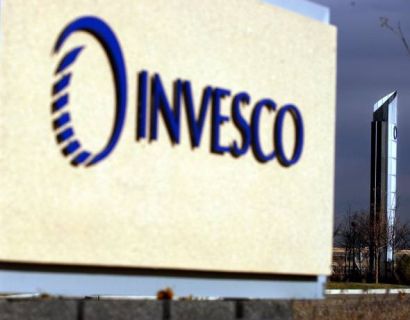Everything for  Business
Business
 Business
Business
 Business
Business
Pays $5.7 billion for MassMutual’s OppenheimerFunds Unit.
MassMutual will become a major Invesco holder after deal.

Invesco Ltd. is betting $5.7 billion that active management has a bright future.
Invesco agreed to pay about that amount in a deal with Massachusetts Mutual Life Insurance Co. to acquire its OppenheimerFunds, which specializes in picking stocks and bonds especially in the international arena. At a time when many investors are deserting active funds for products that track indexes, Invesco Chief Executive Officer Martin Flanagan is convinced that active funds will continue to play a critical role in the portfolios of retail and institutional customers.
“Investors are looking for a broad range of ways to have us meet their outcomes -- it is high-conviction active management, it is passive and it is alternatives,” Flanagan said in a telephone interview.
Roger Crandall, CEO of MassMutual, agreed. “We’re convinced the entire world doesn’t go to one giant, cap-weighted index.”
Invesco shares rose more than 8 percent in pre-market trading in New York.
The transaction is the latest consolidation in the asset management industry, which is experiencing intense pressure on revenues as investors flock to low-fee, passive index and exchange-traded funds. Several firms in the past year have sought acquisitions or mergers for scale to survive and grow, with mixed results. The deal would increase Atlanta-based Invesco’s assets under management to more than $1.2 trillion as OppenheimerFunds manages more than $246 billion in assets.
Analyst Glenn Schorr of Evercore ISI said Thursday in a note titled "A Bigger Melting Ice Cube," that the market will likely struggle “with why they should be excited about getting bigger in a product that is in secular decline" even as investors may appreciate the financial accretion and understand the benefits of scale and diversification.
Invesco, the fourth-largest manager of ETFs, will pay $4 billion in preferred shares and 81.9 million of common stock to add the primarily active manager to its offerings. The common stock is valued at about $1.7 billion, based on Invesco’s closing stock price Wednesday. The preferred shares will pay a fixed rate of 5.9 percent. The transaction is expected to close in the second quarter of 2019. MassMutual will become a significant shareholder in Invesco with about a 15.5 percent stake.
Oppenheimer is best-known for its large stock funds that invest globally and in the emerging markets. Its biggest fund is the $36 billion Oppenheimer Developing Markets Fund that buys emerging market equities. International funds typically charge higher fees than their domestic counterparts. They have also proven more resistant to the lure of passive investing.
Recent efforts by asset managers to grow through mergers haven’t immediately borne fruit. Investors in Janus Henderson Group Plc lost about 17 percent through Wednesday since the May 2017 merger of Janus Capital Group Inc. and Henderson Group Plc. Standard Life Aberdeen Plc fell more than 31 percent since Standard Life Plc acquired Aberdeen Asset Management Plc in August 2017.
Invesco has also been active in growing through acquisitions before Thursday’s announcement. In April, it closed a $1.2 billion acquisition of ETFs from Guggenheim Partners. Flanagan said his track record of buying and integrating other asset managers will help the company succeed.
“Writing the check is not enough,” he said. “What is really important is to execute a combination.”
Flanagan said he expected the combination to yield about $475 million in cost-savings over two years.
MassMutual’s Crandall has been reshaping the company’s asset-management operations. In 2016, he combined some units under the Barings brand led by Tom Finke. Barings, which oversaw more than $306 billion as of June 30, has strategies in sectors including private credit, fixed income, equities and real estate.
Bloomberg.com
 What are you doing with your RV in the offseason?
What are you doing with your RV in the offseason?
 Adobe will buy online design startup Figma for $ 20 billion
Adobe will buy online design startup Figma for $ 20 billion
 To combat the gas crisis, Germany offers a new plan for cheap transit
To combat the gas crisis, Germany offers a new plan for cheap transit
 Porsche family seeks iPO buyout after tearful defeat
Porsche family seeks iPO buyout after tearful defeat
 Clubs and bars are popping up all over Manhattan, providing an alternative social hub and jobs.
Clubs and bars are popping up all over Manhattan, providing an alternative social hub and jobs.
This site uses cookies and other visitor identifiers for the convenience of each user. If you stay on our site after reading this message, it means that you have no objection to the use of these technologies. Learn more
